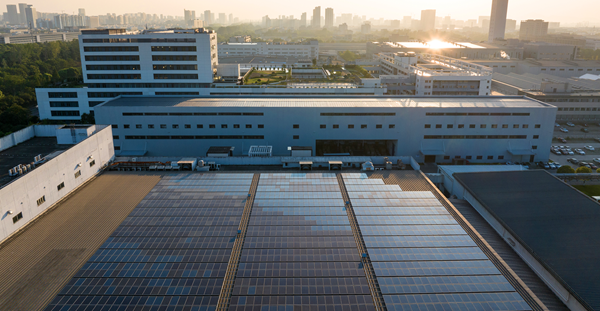Imagine you didn’t have indoor plumbing, electricity, or insulation and heating to keep you warm inside your home. Think about what this would mean for your quality of life. Now imagine, these hardships are compounded by increasingly frequent damage from hurricanes and flooding, or that your community’s water supply is unstable because of extreme heat and drought.
While you may not think this could be the case in urban habitats, sadly for millions of people living in cities throughout the developing world, this is reality. If you’re reading this, hopefully this doesn’t sound like the conditions you live in. However, it’s important that we all recognize the way our lifestyles can contribute to the climate crisis and have inadvertent negative effects on living conditions for vulnerable people.
At Arcadis, we’re working to change the way we live in cities in the developed world, to avoid even more catastrophic climate change impacts. Additionally, through the Shelter Program, a partnership between Arcadis and UN-Habitat, we are protecting people in urban habitats in the developing world from the crisis which is already upon us.
Mitigating climate change in the developed world
Urban areas lay at the root of the carbon emissions problem, as they are responsible for over 70% of global greenhouse gas emissions. This means that we must rein in and achieve net zero carbon emissions in cities to mitigate global warming, and these are efforts that we must continually work towards over the next decades. The IPCC’s 2021 report on the physical science basis for climate change has made it clear that even with an immediate and drastic drop in global emissions global warming is set to continue through mid-century.
In our projects with clients around the world, we push the boundaries of what is possible in sustainability, working to drive down urban emissions from the built environment. In Germany, we’ve partnered with one of Europe’s leading electricity transmission and systems operators, TenneT, to streamline their stakeholder engagement processes for construction of new green energy infrastructure, facilitating transition of the energy sector to a carbon-neutral goal.
In Australia, our assistance in designing and planning expansion of Sydney’s metro system included a seawater cooling system for the Barangaroo underground metro station, which reduced energy consumption by 45% and resulted in the station receiving a 6-star rating from Green Building Council of Australia.
We have also helped CSX Railroad become the first railroad in the United States to have their emissions intensity goal, reducing greenhouse emissions by 37% between 2014 and 2030, approved by the Science Based Target Initiative.
Adapting the developing world to climate change realities
As I mentioned, the IPCC report shows that the effects of human activities on the increase in carbon emissions are unequivocal. Current carbon dioxide levels have caused each of the last four decades to be successively warmer than the decade before and resulted in a temperature rise of approximately 1°C compared to pre-industrial years. This single degree of temperature increase has already caused multiple observable changes, such as rising global sea levels and increasing intensity and frequency of heat waves and extreme rainfall events.
Developing countries are especially vulnerable to the impacts of climate change. The economies of many developing nations are highly susceptible to climate fluctuations, and these countries often have a lower overall capacity to adapt to climate change impacts due to their limited fiscal options.
Arcadis and UN-Habitat recognize the asymmetric effects of climate change and are calling attention to the need to adapt to climate change impacts and move towards a net zero carbon world through transforming and improving urban areas. Through the Shelter Program, our two organizations combine our expertise, knowledge, and skills to commit to building safe and sustainable living conditions for people in underserved communities.
Since 2010, more than 2,200 Arcadis staff have provided pro-bono expertise in more than 30 countries to support developing communities in adapting to climate change realities and planning for a more sustainable future. Shelter missions have included, among other outcomes, helping communities in Mongolia address flooding issues resulting from melting permafrost, working with communities in Bolivia to improve public transportation systems, and assisting communities in Mozambique with coastal resiliency issues in the aftermath of Tropical Cyclone Idai.
Leading our industry to net zero
However, efforts such as the Shelter program are just the beginning of what needs to be done. At Arcadis, we recognize the importance of leading our industry in the transition to a net zero carbon world, and we are committed to leading our industry in helping mitigate climate change. Our CEO, Peter Oosterveer, responded with the following statement after the release of the 2021 IPCC report (you can read his full statement here):

To demonstrate our commitment to sustainability for our client and our communities, Arcadis plans to achieve net zero carbon emissions for our global operations by 2035. A few of the steps we are taking to reach this goal include sourcing 100% renewable electricity globally before the end of 2021 and reducing 50% of emissions caused by domestic and international flights by 2025.
World Habitat Day is a moment each year to remember that we all have the power and the responsibility to shape the future of our cities and towns, and to promote sustainable urban development policies. The theme of World Habitat Day 2021 is “Accelerating urban action for a carbon-free world” which is particularly relevant in light of the upcoming COP-26, in Glasgow, UK.
We hope you will join us in taking action to improve quality of life for everyone around the globe.
 |
Tanya Huizer |







